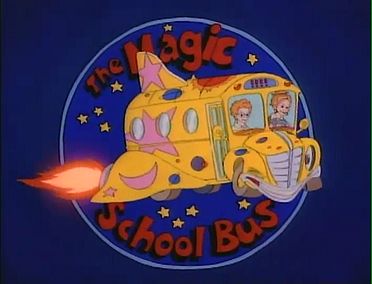

“ Chloe,” “ Cocktails for Two,” “Holiday for Strings,” and “That Old Black Magic” were among the songs receiving the Jones touch of madness that included animal sounds, special effects such as breaking glass or jarring bursts from whistles or pistols. Spike Jones and His City Slickers, a profoundly goofy band popular in the ‘40s, desecrated many of the most popular songs of the day to the great amusement of their fans. Others who have performed the song on film include Bing Crosby in Here Come the Waves (1944), Frank Sinatra in Meet Danny Wilson (1952), and Marilyn Monroe in Bus Stop (1956). His up tempo reading of the torch song became his signature song.
MAGIC SCHOOL BUS THEME SONG LYRICS MOVIE
Perhaps more than anyone else, singer, night club performer, and Broadway/film star Billy Daniels brought attention to “That Old Black Magic” which he sang in the 1950 movie When You’re Smiling. The Louis Prima/Keely Smith version of “That Old Black Magic” was voted the Best Performance by a Vocal Group. Several categories were established to represent different branches of the industry. In 1959 the Grammy awards were started by the National Academy of Recording Arts and Sciences. Subsequently, only songs composed expressly for the screen would be eligible. According to David Ewen in his book Great Men of American Popular Song, Kern felt strongly enough that he urged the members of the Academy of Motion Picture Arts and Sciences to change the rules, which they did. Kern thought the Arlen/Mercer song should have won because it was created specifically for a film while his song was interpolated into The Fleet’s In. The song was nominated for a Best Song Oscar in 1943 however, Jerome Kern’s “The Last Time I Saw Paris” with lyrics by Oscar Hammerstein II won. Louis Prima and Keely Smith (1958, #18) Ĭhart information used by permission from Joel Whitburn's Pop Memories 1890-1954.


Horace Heidt and His Orchestra (1943, instrumental).Freddie Slack and His Orchestra (1943, Margaret Whiting, vocal).Glenn Miller and His Orchestra (1943, Skip Nelson and the Modernaires, vocal).

Two other band versions charted that same year, one by boogie woogie pianist Freddie Slack that hovered at #10 and the other by Horace Heidt, pianist and radio/TV personality, who took it to #11: The Miller aggregation took it to number one for a week in 1943, and it remained on the list for another 18 weeks. “That Old Black Magic” enjoyed several trips to the charts over an eighteen year period. “.It had a phrase in it-‘ do do that voo-doo that you do so well.’.Anyway, that thing about voodoo must have stuck with me, because I paraphrased it in ‘Old Black Magic.’” Max Wilk in They’re Playing Our Song: Conversations with America’s Classic Songwriters tells a behind-the-scenes story of how Mercer got the idea for his lyric from Cole Porter’s “ You Do Something to Me.” “That one came from one of the early Cole Porter songs I heard when I first came to New York,” Mercer says. The film also introduced another memorable song from the duo of composer Harold Arlen and lyricist Johnny Mercer, “Hit the Road to Dreamland.” With little plot, the movie featured Paramount Studio contract players such as Bob Hope, Bing Crosby, Dorothy Lamour, Veronica Lake, Paulette Goddard, Eddie “Rochester” Anderson, Dick Powell and more. The movie was a “feel good” musical intended to entertain troops. Susan Sackett in Hollywood Sings! An Inside Look at Sixty Years of Academy Award-Nominated Songs says, “In a routine that centered mostly around a dance number performed by ballerina Vera Zorina (choreographed by her then-husband, the legendary George Balanchine) Johnston introduced the song.” This gem of a song, “That Old Black Magic,” written by composer Harold Arlen and lyricist Johnny Mercer for the 1942 film Star-Spangled Rhythm was played behind the opening credits and sung by relative unknown Johnny Johnston. “Arlen’s music is rife with repeated notes and octave drops, and Mercer’s phrasing makes the lyric mime the musical motion.”


 0 kommentar(er)
0 kommentar(er)
